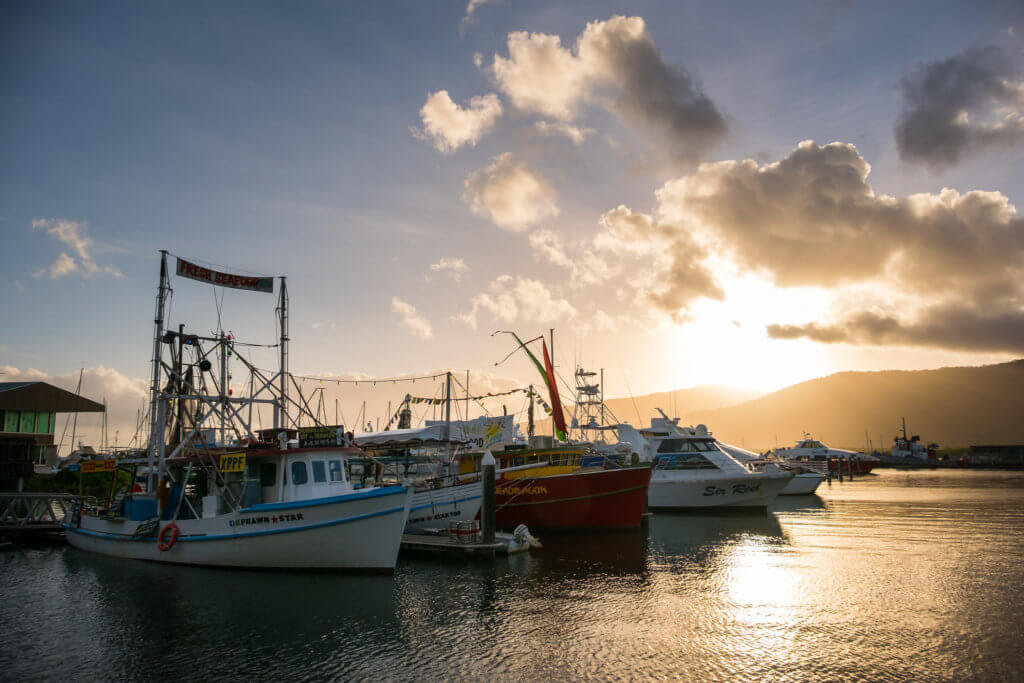AMCS relies on the critical skills and expertise of marine scientists to support our ongoing conservation work. We have some of the best in the world in Australia and we feel very privileged to be part of the marine conservation community.
Two marine science students from Griffith University recently completed an internship as part of our skill sharing opportunities with scientists. They threw themselves into the familiar task of hunting down all the related peer-reviewed evidence (what scientists know as a “literature review”) to see what the weight of evidence shows us about marine protected areas.
Here, Nikol and Charley share some of the findings that surprised them.
Marine protected areas contribute to better mental health
– Nikol
Reading these articles taught me so much. As a student with a biological science background, I never thought of looking at the importance of marine parks from a different perspective. I was fascinated when I came across an article about marine protected areas and their influence on cultural and spiritual identity, personal development and mental and physical health. I found this article extremely interesting, and I wanted to explore more! Could marine sanctuaries and mental health really be linked?
Science ‘works’ by accumulating evidence – the more times a link is found between two factors, the more we can trust that they’re connected. This is how we can be sure climate science is trustworthy – there are literally thousands of peer-reviewed studies done by unconnected scientists from around the world that provide the link between our increased greenhouse emissions and warming global temperatures.
Unfortunately, until recently there’ve been very few studies that have gathered data on people’s mental health and assessed whether the presence of healthy nearby may contribute to it. However, the few studies that have been done are beginning to suggest this is very much the case.
Another review showed that people who live close to coastal areas have lower mental distress than those living further away. As someone who moved from Central Europe to a coastal area, I can honestly say that I now realise that I feel way better than when I lived in Europe!
Being surrounded by such incredible nature that Australia can offer made me realise how grateful we should be to live where we do, and how important it is to protect these places.

It made me also realise that we, as a people, are part of nature, and being connected to nature can improve our wellbeing and, therefore, our overall health.
AMCS is an organisation that cares about protecting nature, and if we think about it in more depth, AMCS cares about mental health and our wellbeing. After doing an internship with AMCS, I appreciate how much work goes into what they do and what it takes to protect nature. I learned all this from just a couple of months of analysing key messages from papers and how a small message can make a huge impact.
Protecting marine areas supports people and livelihoods
– Charley
As a student with a heavily science-based background (majoring in both Wildlife Biology and Marine Biology), I loved the idea of sharing key facts and scientific information with the general public about the importance of marine protected areas and how they assist our beautiful marine ecosystems. What I didn’t expect were the numerous journals on social science. This was a chance for me to develop my understanding of social science and how this plays a key role in AMCS’s campaign work.
I loved reading about the benefits of marine sanctuaries – both physical and emotional. So many components of our ecosystems positively benefit from the environmental protection that marine areas provide, and more than that, so many different people benefit as well. It’s not only about the benefits that make marine biologists happy! For example, marine sanctuaries reduce the risk of recruitment failure to local fisheries, meaning fisheries get more fish, thanks to these protected areas! There are many studies that have produced findings along these lines: protected areas really do benefit the economy by both supporting commercial fisheries and improving tourism experiences for fishers (because they are more likely to get better catches) and nature lovers, like divers.

Another surprise was that the success of marine protected areas actually increases with the involvement of recreational fishers – and given 70-80% of recreational fishers support marine sanctuaries, I don’t believe there should be any reason for any government (or recreational fishing) body to oppose these no-take places.
In one way this research led me to a surprising realisation – that AMCS is more than just an organisation focusing on the protection of our ocean wildlife. They focus on and care about the people.
So much of their work relies on the support of the general public, and as a result their views and voices really matter. They want to show how protecting our oceans and marine life will help everyone. I’ve experienced exactly this in my internship; producing key findings on the benefits of marine protected areas which apply to people from all different backgrounds.
If you’re interested in accessing any of the peer-reviewed papers linked in this article, please send us a message and we’ll get them to you! (Attn: Katie Walters)